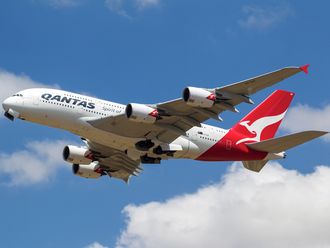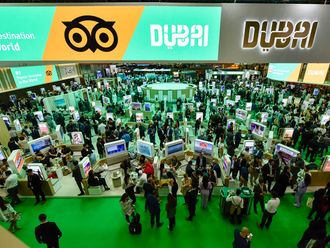Dubai: If newspapers in the Middle East want to stay above water, then they need to ride the digital wave, according to news and publishing professionals at the fifth Middle East World Association of Newspaper (WAN) and IFRA Conference held in Dubai on Weednesday.
News organisations need to define the technology and the platforms they want to use in order to adapt to the change that has taken over the news industry worldwide, Reiner Mittelbach, CEO of WAN-IFRA, Germany, said. The IFRA is an international newspaper and research association.
"The consumers decide if they read the newspaper or not, and if the newspapers fail to comply with the needs of the consumers, they will go out of business," he said.
With broadband penetration and mobile services expanding in this region, change in the newspaper business shouldn't be delayed, he said.
Facing challenges
"We are trying to be in a better position in order to be able to face the challenges," Mohammad Abdullah, Executive Director of Dubai Media City, said. The challenges, Abdullah said, are in getting the traditional industry to cope with new technology.
"They are no longer in denial," he said. "Now it all comes down to the ability in terms of resources and in terms of the flexibility of the procedures to adapt."
In this part of the world, the change would not happen until there's pervasive broadband penetration, Randy Covington, Director of IFRA Newsplex Training Center in the US told the conference.
"But don't make the mistakes that newspapers in the US and elsewhere did by going too slow," he said. "Get ready because [change] will happen."
Nicco Ruokosuo, Chief Operating Officer for Saudi Research and Marketing Group, one of the largest publishing groups in the Middle East agrees that newspapers will have to venture into other platforms if they want to survive.
"When the broadband penetration reaches 60 or 70 per cent, it's a vast change and the consumer shifts from the newspaper to the digital media because it's much more interactive, exciting and varied," he said.
"It's visually more attractive and offers an unlimited number of options."
The local publishers need to take advantage of the time between now and the point when the consumer behaviour changes in this part of the world by planning how they are going to adapt, he said. "The typical mistake that newspapers do is that they wait for the shift to happen and then they start reacting and then it's a little bit too late."
In advance
We need to be pro-active and get the training in advance to be ready, he said.
Ruokosuo said that the newspapers can't save themselves through cost-cutting. "When the revenues start declining, the first thing you cut is training and that's a vicious cycle," he said. "You can only train and educate and innovate yourself out of it."
Inevitable
With innovative new technologies released everyday in the US and many parts of Europe, the shift towards multimedia has become inevitable. The latest addition is Apple's iPad, a 9.7-inch touch screen that gives users access to web, email, photos, video and thousands of applications all the information they want at the touch of a finger.
Dr Ali Al Assam, Managing Director of KnowledgeView, a UK based consultancy firm on newsroom systems for multi-publishers, explained that not many people understand the concept of adopting multimedia because it's a completely new medium for them. "Some understand the web by simply putting the newspaper up on the web which defeats the objective," he said. "You need developing stories during the day. The newspapers need to interact on the web and via mobile."
Although many news organisations are looking to cut down costs, Al Assam said that the newspapers should look at this opportunity as an investment that would generate revenues in the long run rather than as additional cost for the company.
He emphasised the importance of changing the mind-set of journalists and chief editors in order for the change to work in the first place. "If you want change you need to communicate with the journalist," he said.












